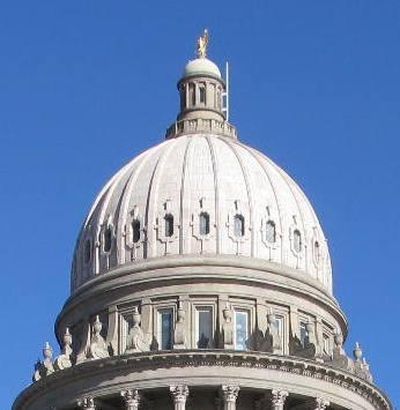Idaho officials pitch new plan to address Medicaid gap

Idaho officials said Thursday they have found a creative solution to provide health care to poor residents who do not have medical coverage while simultaneously limiting the state’s ongoing health insurance hikes.
“Health care is very broad and very complex,” said former Idaho Department of Health and Welfare Director Dick Armstrong. “You can’t talk about one part without touching other pieces.”
Armstrong retired from the department earlier this year, but was appointed by Gov. Butch Otter to serve on a health care advisory panel working to submit recommendations to the governor and Legislature on possible reforms.
Armstrong and Idaho Department of Insurance Director Dean Cameron presented the plan to an advisory panel Thursday, proposing Idaho should get legislative approval to apply for two federal waivers that would change how the state’s working poor can qualify for health insurance subsidies or Medicaid.
The first waiver would allow working adults to buy subsidized health insurance on the state’s health care exchange. The second waiver would allow the state’s sickest adults, like those with stage-4 cancers, to get insurance from Medicaid instead of the exchange.
Doing so would provide medical coverage to an estimated 35,000 Idahoans and cut premiums by up to 20 percent. That’s because childless adults who are below the federal poverty line currently do not qualify for Medicaid in Idaho, nor do they qualify for subsidized plans on Idaho’s health insurance marketplace exchange.
Furthermore, 2 percent of those sickest adults create roughly 40 percent of insurance claims. Both Armstrong and Cameron argued that removing those 2,500 people from the health exchange market to Medicaid would drive down health insurance premiums.
“We’re not covering the 30-year-old playing video games all day in the basement,” Cameron said. “Instead, the incentive becomes, ‘I’m going to get a job and I’m going to file a tax return if I want a tax credit.’ ”
The proposal would cost the state an estimated $22 million because it would require the state to partially match the $53 million in Medicaid expected to cover the expanded population using the federal program.
Known as the so-called Medicaid gap population, advocates have long pleaded with the state’s GOP-controlled Legislature to find a way to provide medical care to those adults because their medical bills end up being paid for by the state’s counties and people who have private insurance.
However, Idaho lawmakers have remained steadfast in their resistance to the most popular option - expanding Medicaid eligibility requirements as allowed under the Affordable Care Act - due to their discomfort with using the federal government and relying on former President Barack Obama’s health care law.
Armstrong pitched the plan Thursday during a meeting of the Governor’s Health Care Advisory Panel, which he chairs. He said he has served on six advisory panels tasked with addressing the Medicaid gap and lowering health care costs - all of which produced recommendations that died in the Legislature.
House Speaker Scott Bedke, R-Oakley, said Thursday that he doesn’t yet know the details of the plan, but said, “I think it shows continued proactivity on the governor’s part and on the agency’s part, and we oughta be looking at all that kind of stuff.”
Lawmakers will start the next legislative session in January, which is also an election year for all statewide and legislative offices.
Proponents of the plan will have to convince lawmakers to approve the waivers and spending the $22 million.